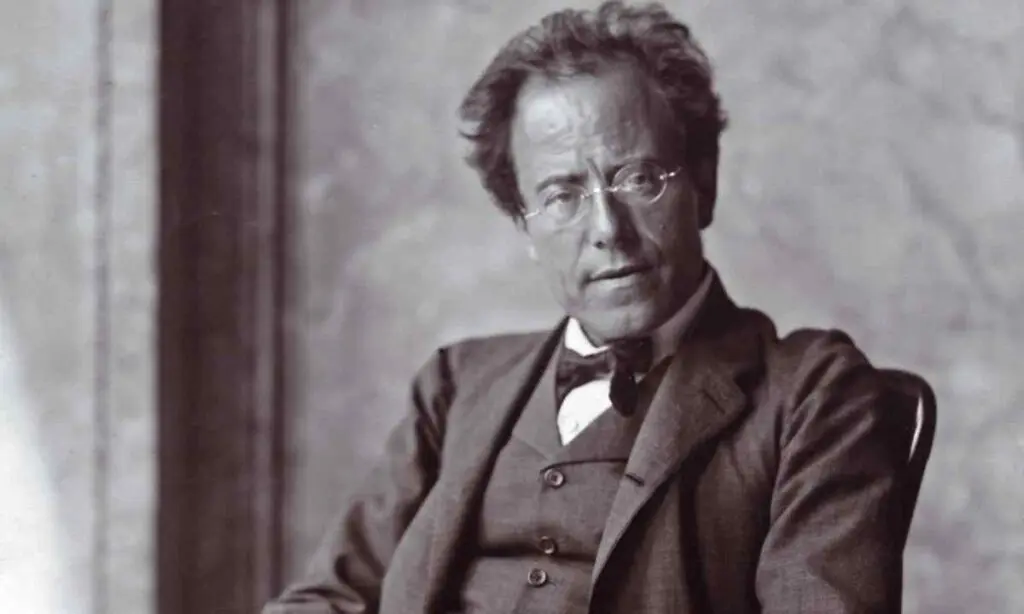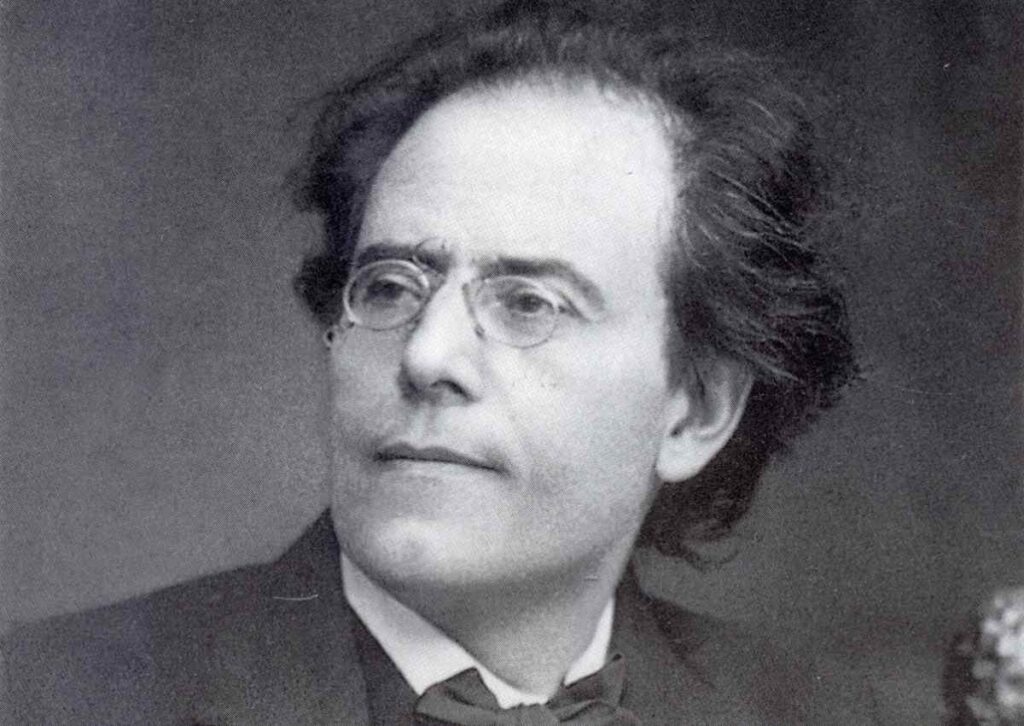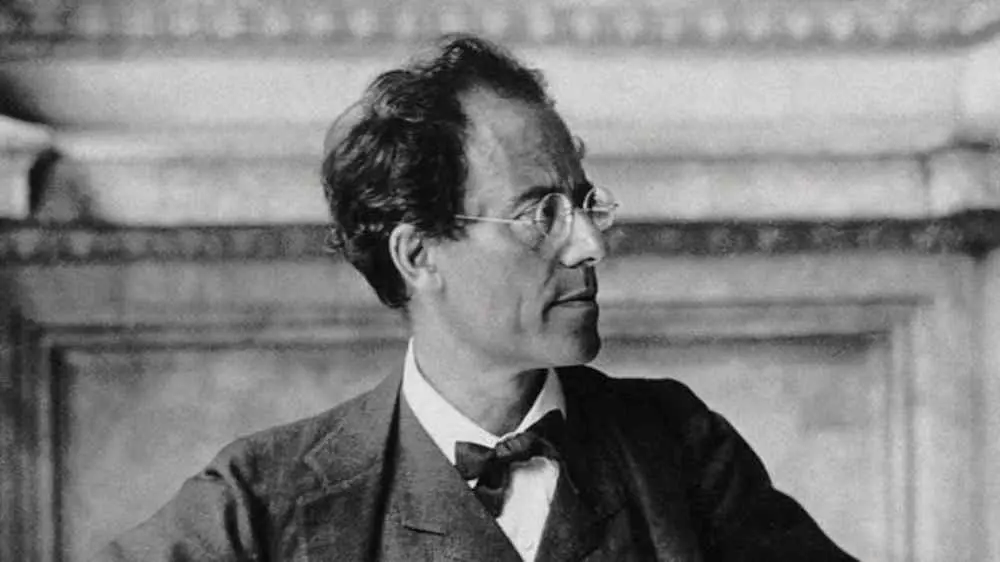Gustav Mahler is a composer, opera singer, conductor. During his lifetime, he managed to become one of the most talented conductors on the planet. He was a representative of the so-called "post-Wagner five". Mahler's talent as a composer was recognized only after the maestro's death.
Mahler's legacy is not rich, and consists of songs and symphonies. Despite this, Gustav Mahler is today included in the list of the most performed composers in the world. Film directors are not indifferent to the work of the maestro. His works can be heard in modern films and serials.

Gustav's work is a bridge that connected the romanticism of the XNUMXth century and the modernism of the XNUMXth. The maestro's works inspired the talented Benjamin Britten and Dmitri Shostakovich.
Childhood and youth
The master is from Bohemia. He was born in 1860. Gustav was brought up in a Jewish family. Parents raised 8 children. The family lived in rather modest conditions. Parents had nothing to do with creativity.
Gustav was a little different from children of his age. He was a closed child. When he was 4 years old, the family moved to the town of Jihlava (east of the Czech Republic). The city was inhabited by Germans. Here he was first imbued with the sound of a brass band. The parents realized that their son had a good ear after he reproduced the melody heard at the opera house.
He soon mastered playing the piano. When the parents realized that Gustav could break into people, they hired him a music teacher. At the age of ten, he wrote his debut work. Then he first performed on the big stage: he was invited to participate in the city festive event.
In 1874, they started talking about him as a really promising composer. Gustav, who was struck by the death of his brother, composed an opera. Alas, the manuscript has not survived.
He studied at the gymnasium. In an educational institution, Mahler studied only music and literature, since nothing else interested him. By that time, the guy's father stopped seeing him as a musician and composer. He wanted to switch him to a more serious profession. The head of the family tried to transfer his son to a Prague gymnasium, but his attempts were even.
Then the father acted more decisively. Against the will of Gustav, he took him to Vienna. The head of the family handed over his son under the care of Julius Epstein. He noted Mahler's high level of professionalism. Julius advised Gustav to enter the Vienna Conservatory. The young man studied under Epstein in the piano class.

The creative path of the composer Gustav Mahler
Mahler wrote in one of his letters to a friend that Vienna had become his second homeland. Here he managed to reveal his creative potential. In 1881 he took part in the annual Beethoven Competition. On the stage, the master presented the musical work "Lamentation Song" to the demanding public. He hoped that he would be the one to win. What was the disappointment of the maestro when the victory went to Robert Fuchs.
Unlike most creative people, failure did not motivate Gustav to take further action. He became very angry and even left writing musical works for a while. The musician did not begin to finalize the begun opera-tale "Ryubetsal".
He took the place of a conductor in one of the theaters in Ljubljana. Soon Gustav received an engagement at Olmutz. He was forced to defend the Wagnerian principles of orchestra leadership. Further, his career continued at the Karl-Theatre. In the theater, he took the position of choirmaster.
In 1883, the maestro became the second conductor of the Royal Theatre. He held this position for several years. Then the young man fell in love with a singer named Johanna Richter. Under the impressions of a woman, he wrote the cycle "Songs of a Wandering Apprentice." Music critics include the presented works in the list of the most romantic works of the master.
At the end of the 80s, relations between Gustav and the theater management deteriorated. Due to constant conflicts, he was forced to quit his job. He moved to Prague. Local admirers of classical music warmly welcomed the talented Mahler. Here he first felt himself as a sought-after conductor and composer. He bitterly parted with the local public. The contract concluded with the New Theater of Leipzig for the 1886/1887 season forced him to leave Prague.

Composer popularity peak
After the presentation of the opera "Three Pintos", the maestro fell in popularity. Mahler completed the opera by Carl Weber. The work turned out to be so successful that the premiere was a triumph on the most prestigious theater stages in Germany.
At the end of the 80s, Gustav experienced not the most pleasant emotions. He started having problems on the personal front. The emotional state of the maestro left much to be desired. He decided that this was the best period for composing a piece of music. In 1888, the premiere of the First Symphony took place. Today it is one of Gustav's most popular compositions.
He spent 2 seasons working in Leipzig, after which he left the city. He did not want to leave Leipzig until the very end. But due to constant conflicts with the assistant director, he was forced to leave the city. Mahler settled in Budapest.
Success in work Gustav Mahler
He was warmly received at his new place. He headed the Royal Opera. Gustav received a pretty good salary by those standards. However, it cannot be said that he lived richly. After the death of the head of the family and mother, he was forced to financially provide for his sister and brother.
Before joining the Royal Opera, the theater was in a terrible state. Gustav succeeded in turning the opera into a national theatre. He got rid of guest performers and formed his own orchestra. The theater began to stage operas by Mozart and Wagner. Soon, the singer Lilly Leman appeared in his team, who found the status of the best vocalist in the creative circle. She was famous for her unique soprano voice.
A few years later, the maestro received an invitation from Hamburg. Gustav was invited to the country's third most important opera stage. In the new place, Mahler took the position of director and bandmaster. He did not consider the opportunity to work in a prestigious theater. There were reasons for this. The Royal Opera has a new quartermaster Zichy. He did not want to see Gustav at the head of the theater, since the composer was German by nationality.
"Eugene Onegin" is the first opera that Gustav staged on the stage of the Hamburg theater. Mahler was crazy about the works of the Russian composer Tchaikovsky, so he gave his all that the premiere of the opera made a proper impression on the audience. Tchaikovsky arrived at the theater to take the conductor's stand. When he saw Mahler at work, he decided to take a seat. Later, Piotr will call Gustav a real genius.
In Hamburg, the composer publishes the collection The Boy's Magic Horn, based on the eponymous book of poems by the poets of the Heidelberg circle. The work was appreciated not only by fans, but also by critics.
New post
Mahler's work successes in Hamburg were noticed even in Vienna. The government wanted to see the maestro in their country. In 1897, Gustav was baptized into Catholicism. In the same year he signed a contract with the Court Opera. He received the position of the third conductor.
After some time, Gustav managed to take the post of director of the Court Opera. The maestro's popularity in Vienna skyrocketed. On the wave of success, he presented the Fifth Symphony to fans of his work. This work divided society into two camps. Some praised Gustav for innovation, while others openly accused Mahler of vulgarity and outright bad taste. But the maestro himself was not interested in the opinion of his contemporaries. He released the Sixth, Seventh and Eighth Symphonies.
In addition, Gustav established new rules in the theater. Not everyone liked Mahler's new laws, but those who wanted to work at the Court Opera further were forced to accept the conditions. And if earlier the public, having entered the theater, felt at home, then with the advent of the reign of Gustav, the ban on entering the theater when it pleases came into force.
He devoted more than 10 years of his life to the theater. In recent years, Gustav felt a strong malaise, which was caused against the backdrop of constant stress and a heavy work schedule. He was forced to leave his job.
The theater management appointed the maestro a pension with one condition - Mahler should no longer work in any of the Austrian operas. He signed a contract, but when he saw what salary awaits him, he was disappointed. He realized that he would still have to work, but not in the Austrian theaters.
Soon he went to work at the Metropolitan Opera (New York). At the same time, the premiere of the work "Song of the Earth" and the Ninth Symphony took place. During this period of time, his work was influenced by the works of such writers as Nietzsche, Schopenhauer and Dostoyevsky.
Details of the personal life of the composer Gustav Mahler
Of course, the maestro was popular with women. Love not only inspired him, but also brought him heartache. In 1902, he Gustav took a girl named Alma Schindler as his official wife. As it turned out, she is 19 years younger than her husband. Mahler proposed to her on the 4th date. Alma bore her husband a son and a daughter.
The family life of the couple resembled an idyll. They got on well with each other. The wife supported the efforts of Gustav. But soon disaster struck at their house. My daughter died at the age of 4. Against the backdrop of experiences, the composer's health was greatly shaken. Doctors said he had serious heart problems. Then he composed the work "Songs about dead children."
Family life has cracked. Alma, who experienced one of the biggest losses in her life, suddenly realized that she had completely forgotten about the talents of her youth. The woman dissolved in her husband and completely ceased to develop. Before meeting Gustav, she was a sought-after artist.
Mahler soon learned that his wife was unfaithful to him. She had an affair with a local architect. Despite this, the couple did not part. They continued to live under the same roof until the death of the maestro.
Interesting facts about the composer
- He grew up as a closed child. One day his father left him in the woods for a few hours. When the head of the family returned to the same place, he saw that the son had not even changed his position.
- Alma Mahler, after the death of her husband, was married twice - to the architect V. Gropius and the writer F. Werfel.
- He was the second of 14 children, only six of them were destined to reach adulthood.
- Mahler loved long journeys and swimming in icy water.
- The composer suffered from nervous tension, skepticism and an obsession with death.
- Beyoncé is a distant relative of the master. The American star is immensely proud of the fact of kinship.
- Gustav Mahler's Symphony No. 3 lasts 95 minutes. This is the longest piece in the composer's repertoire.
Death of Gustav Mahler
In the last years of his life, the composer felt frankly ill. He worked hard and experienced a number of stressful situations that affected his general condition. In 1910, the situation escalated completely.
He suffered a series of tonsillitis. Despite this, he continued to work hard. A year later, he stood at the console, playing a program that consisted of compositions by famous Italians.
Soon disaster struck. He contracted an infectious disease that provoked endocarditis. The complication cost the composer his life. He died in a Vienna clinic in 1911.
The farewell ceremony was attended by hundreds of fans, respected critics and respected artists. He was buried next to his daughter, who died in infancy. The body of Gustav rests in the Grinzing cemetery.
Fans who want to read Mahler's biography can watch director Ken Russell's biopic. Robert Powell - brilliantly conveyed the character traits that were inherent in the maestro.



